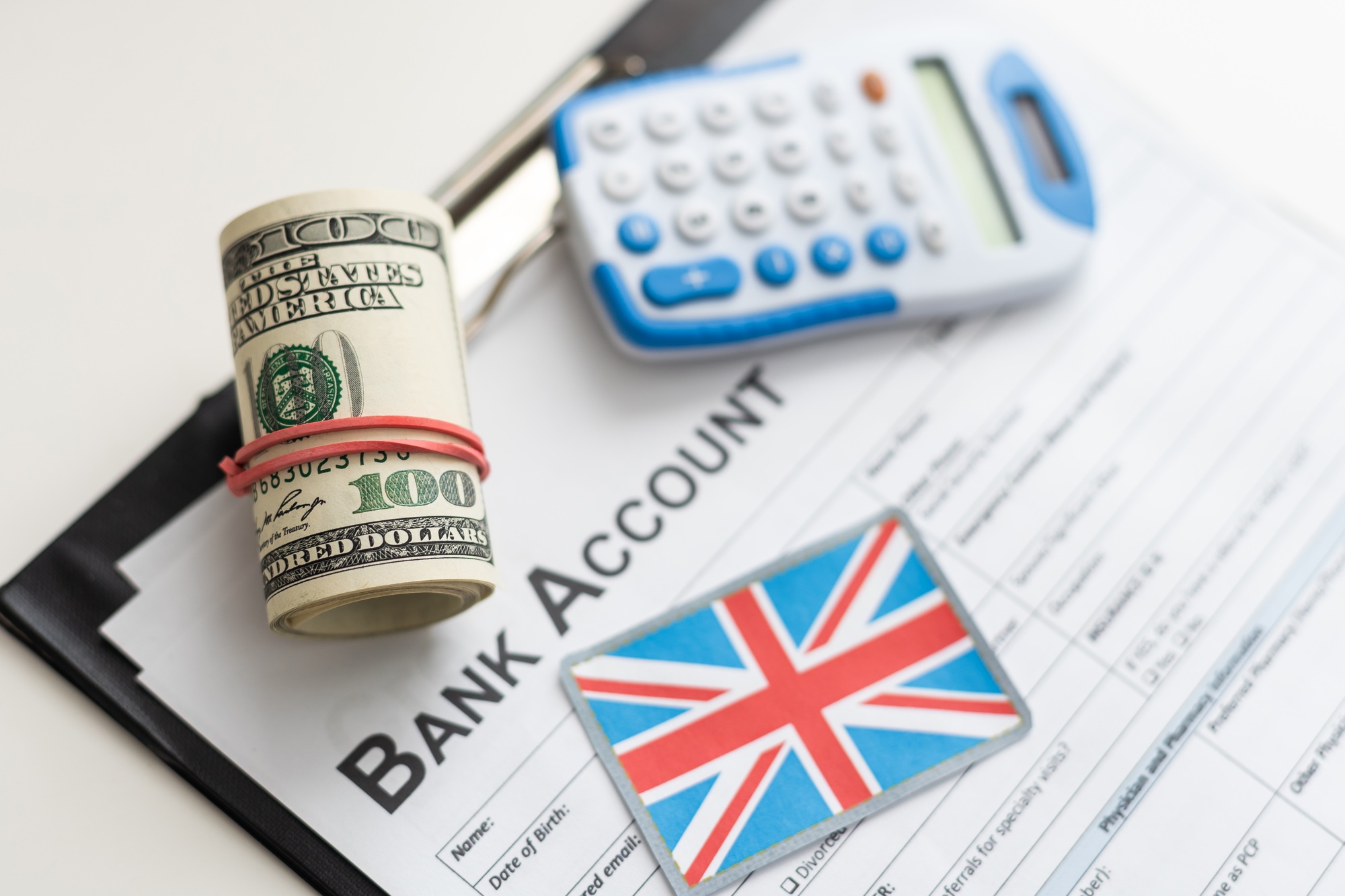Key Takeaways

- Importance of Separation: Opening a business bank account ensures a clear distinction between personal and business finances, simplifying tax filing and enhancing professionalism.
- Types of Accounts: Familiarize yourself with various business bank accounts, including checking, savings, merchant, and money market accounts, each serving specific financial needs.
- Required Documentation: Be prepared with necessary personal and business documents like government-issued ID, Employer Identification Number (EIN), and business name to streamline the account opening process.
- Evaluating Banking Options: Select a bank that meets your business needs by considering fees, online banking features, and additional services like merchant and payroll tools.
- Avoid Common Mistakes: Understand account features and requirements to prevent delays, unexpected fees, and complications, such as mixing personal and business finances.
Starting a business is an exciting journey, but managing your finances can be daunting. One of the first steps in establishing your business is opening a dedicated business bank account. This crucial move not only helps you keep personal and business finances separate but also simplifies tax filing and enhances your professional image.
Understanding Business Bank Accounts

Opening a business bank account provides a foundation for managing your small business’s finances. It helps streamline your financial activities and enhances the professional image of your operation.
Types of Business Bank Accounts
- Checking Accounts: Focus on day-to-day transactions. Use this account for paying bills, receiving customer payments, and daily cash flow management.
- Savings Accounts: Designed for saving money over time. Use this account to set aside funds for future business expenses or emergencies, maximizing interest earnings.
- Merchant Accounts: Essential for businesses accepting credit and debit card payments. Use this account to facilitate customer transactions and manage payment processing fees.
- Business Money Market Accounts: Combine features of checking and savings accounts. Use this account to earn higher interest rates while maintaining access to your funds.
Benefits of Having a Business Bank Account
- Financial Separation: Keep your personal and business funds distinct. This separation simplifies financial management and leads to clearer accounting and tax procedures.
- Professional Image: Present your business more professionally. An independent account allows you to write checks and accept payments in your business’s name, boosting credibility with clients.
- Tracking and Monitoring: Facilitate better tracking of expenses. Detailed statements from business bank accounts make it easier to identify spending patterns and manage finances effectively.
- Access to Financial Tools: Gain access to various banking tools, such as online banking and budgeting software. These tools enhance your ability to manage finances and forecast your business’s financial health.
- Loan Opportunities: Improve your chances of securing financing. A dedicated account establishes business credit history, making lenders more inclined to provide loans.
Steps to Open a Business Bank Account

Opening a business bank account involves several key steps that ensure your small business finances are properly managed. Follow these instructions to streamline the process.
Choose the Right Bank
Select a bank that aligns with your small business needs. Prioritize aspects such as account types, associated fees, customer service quality, and availability of online banking services. Consider banks like Wells Fargo, Chase Bank, or Bank of America, noted for their support of small businesses due to comprehensive offerings and a strong national presence.
Gather Required Documentation
Gather essential documentation before applying. You’ll need to prepare both personal and business information, including:
- Personal Information:
- Government-issued photo ID (some banks may ask for two)
- Home mailing address
- Personal phone number
- Personal email address
- Date of birth
- Social Security number or ITIN
- Business Information:
- Employer Identification Number (EIN) if applicable
- Business name
- Trade name or DBA (Doing Business As) name, if applicable
Fill Out the Application Form
Complete the application form, which typically includes details about you and your small business. Ensure all information is accurate to avoid delays. Most banks offer online applications for added convenience, allowing you to submit the required information efficiently.
Make an Initial Deposit
Prepare to make an initial deposit to activate your account. Deposit amounts may vary by bank, ranging from $25 to several hundred dollars. Ensure you have the funds ready to meet the minimum opening balance requirement. This deposit solidifies your account and begins the proper management of your business finances.
Tips for Selecting the Best Business Bank Account

Choosing the right business bank account requires careful consideration of several factors, ensuring your small business manages its finances effectively.
Consider Fees and Charges
Evaluate monthly maintenance fees, transaction fees, and costs associated with overdrafts. Look for banks that offer fee waivers based on minimum balance requirements or account activity. Take note of additional charges for services like wire transfers or ATM usage, as these can affect your overall business finance management.
Evaluate Online and Mobile Banking Features
Verify the quality of online banking platforms and mobile apps. Ensure these tools provide essential features like payment processing, balance monitoring, and transaction tracking. Fast access to your financial data can streamline daily operations, helping your small business maintain better control over its money.
Look for Additional Services
Search for banks that offer additional services that benefit your small business. Consider access to credit lines, merchant services, and payroll management tools. These services can simplify financial tasks and enhance the overall efficiency of your operations, allowing you to focus on growth and income generation.
Common Mistakes to Avoid

Opening a business bank account for your small business is an important step. Avoiding common pitfalls can streamline your financial management.
Overlooking Specific Requirements
Don’t overlook the necessary requirements for opening a business bank account. You must provide personal identification like a government-issued photo ID and your Social Security number. Additionally, ensure you have your Employer Identification Number (EIN) and business documentation ready, such as articles of incorporation or LLC operating agreements. Missing these documents can delay the approval process and hinder your ability to manage your business finances effectively.
Not Understanding Account Features
Not understanding the features of your chosen account can lead to financial complications. Each type of account—checking, savings, or merchant—offers different benefits and limitations. Knowing about fees, transaction limits, and interest rates is essential. Inadequate knowledge of these features may lead to unexpected charges or restrictions, affecting your ability to manage money efficiently and hindering your business growth.
Mixing Personal and Business Finances
Mixing personal and business finances creates confusion and complicates your accounting. Keeping your business transactions separate helps maintain clear records, making it easier to monitor cash flow, track expenses, and prepare for taxes. Avoid using personal accounts for business expenses. This practice can lead to difficulties when accounting for business-related tax deductions and may put your personal assets at risk in legal matters. Prioritizing this separation enhances your small business’s financial integrity.
Conclusion

Opening a business bank account is a vital step in establishing your financial foundation. By keeping personal and business finances separate you not only simplify your accounting but also enhance your professional image.
Choosing the right bank and account type tailored to your needs can lead to better management of your finances and access to valuable tools.
Avoiding common pitfalls will ensure a smooth process as you set up your account. Taking these steps seriously will help you maintain financial integrity and support the growth of your business.
Frequently Asked Questions

Why is it important to open a dedicated business bank account?
Opening a dedicated business bank account is crucial for separating personal and business finances. This clear separation simplifies tax filing, enhances your professional image, and aids in tracking expenses effectively. It allows for better management of business funds, making it easier to monitor cash flow and ensure financial integrity.
What types of business bank accounts are available?
There are several types of business bank accounts, including checking accounts for daily transactions, savings accounts for future expenses, merchant accounts for card payments, and money market accounts that often provide higher interest rates while still allowing access to funds.
What steps are involved in opening a business bank account?
To open a business bank account, start by selecting the right bank based on fees, customer service, and account types. Gather necessary documentation, including personal ID and business information. Complete an application form and make an initial deposit to activate your account, with the minimum amount varying by bank.
What should I consider when choosing a business bank account?
When selecting a business bank account, evaluate factors such as fees (like maintenance and transaction fees), online and mobile banking features, and additional services like credit lines and payroll management. Look for potential fee waivers and ensure the account meets your specific business needs.
What common mistakes should I avoid when opening a business bank account?
Avoid overlooking required documentation, including personal identification and an Employer Identification Number (EIN), as missing these can delay approval. Also, don’t ignore the account features; understanding them helps prevent unexpected charges. Lastly, ensure you maintain separation between personal and business finances for better financial management.
Image Via Envato



